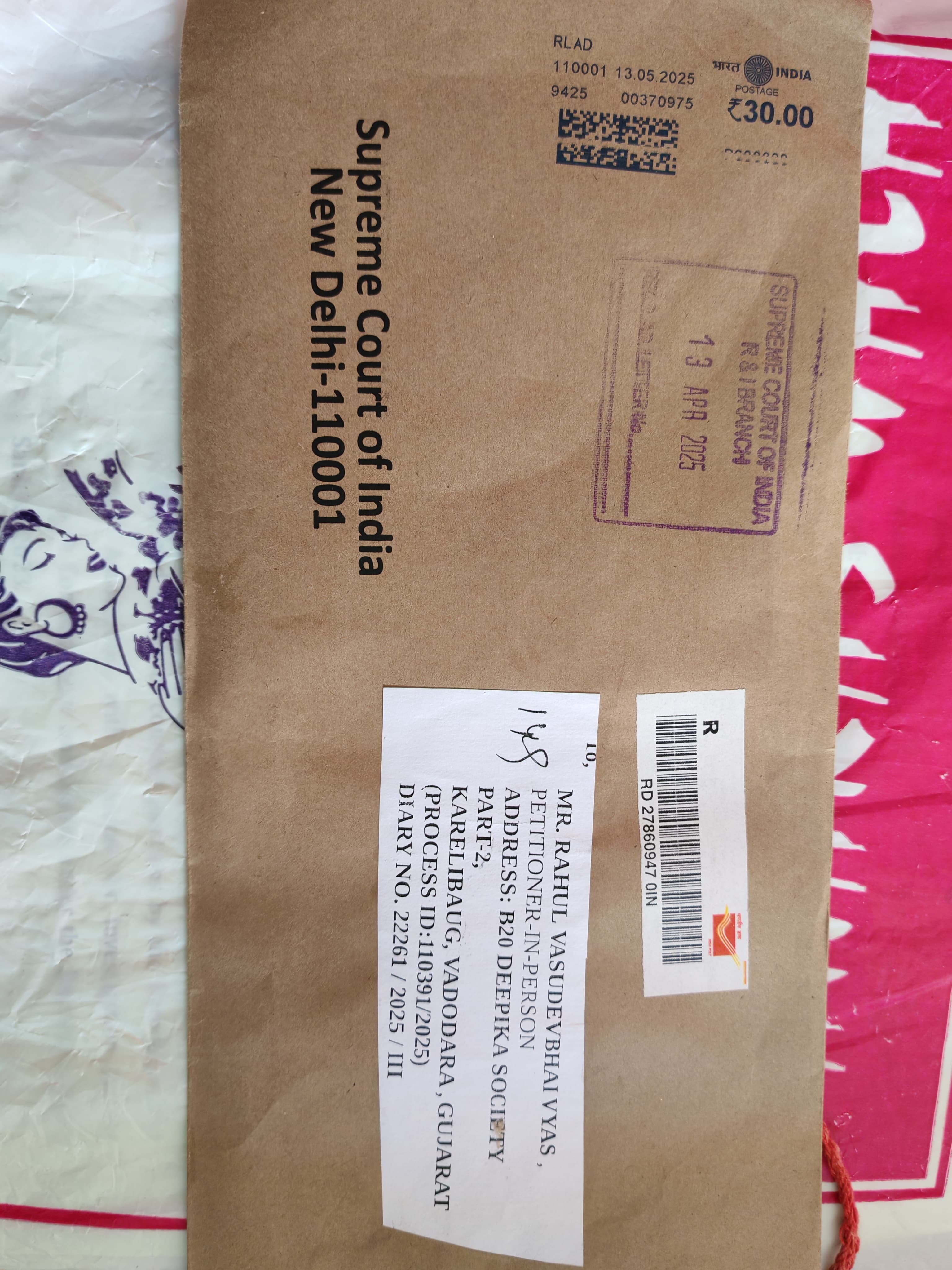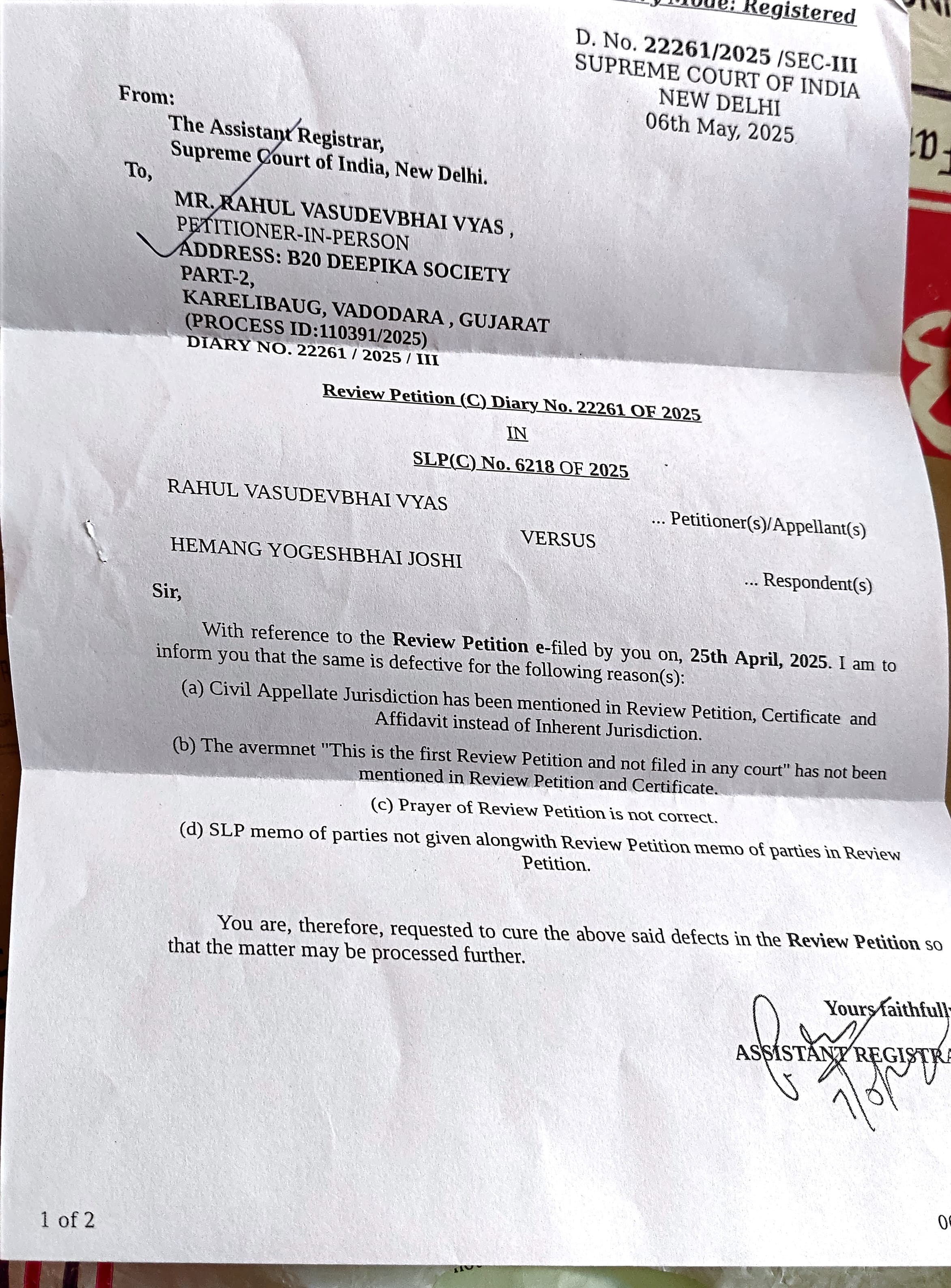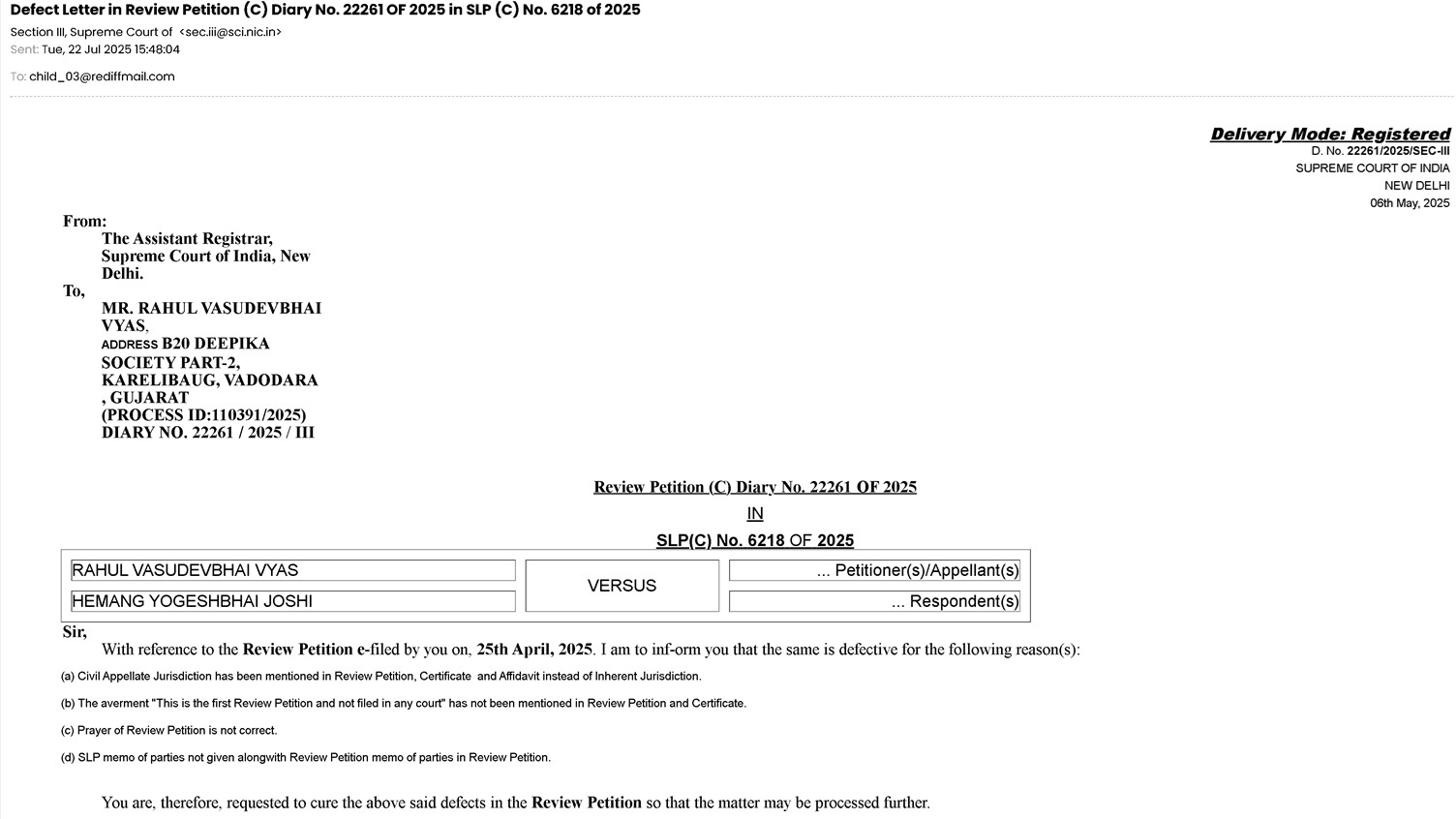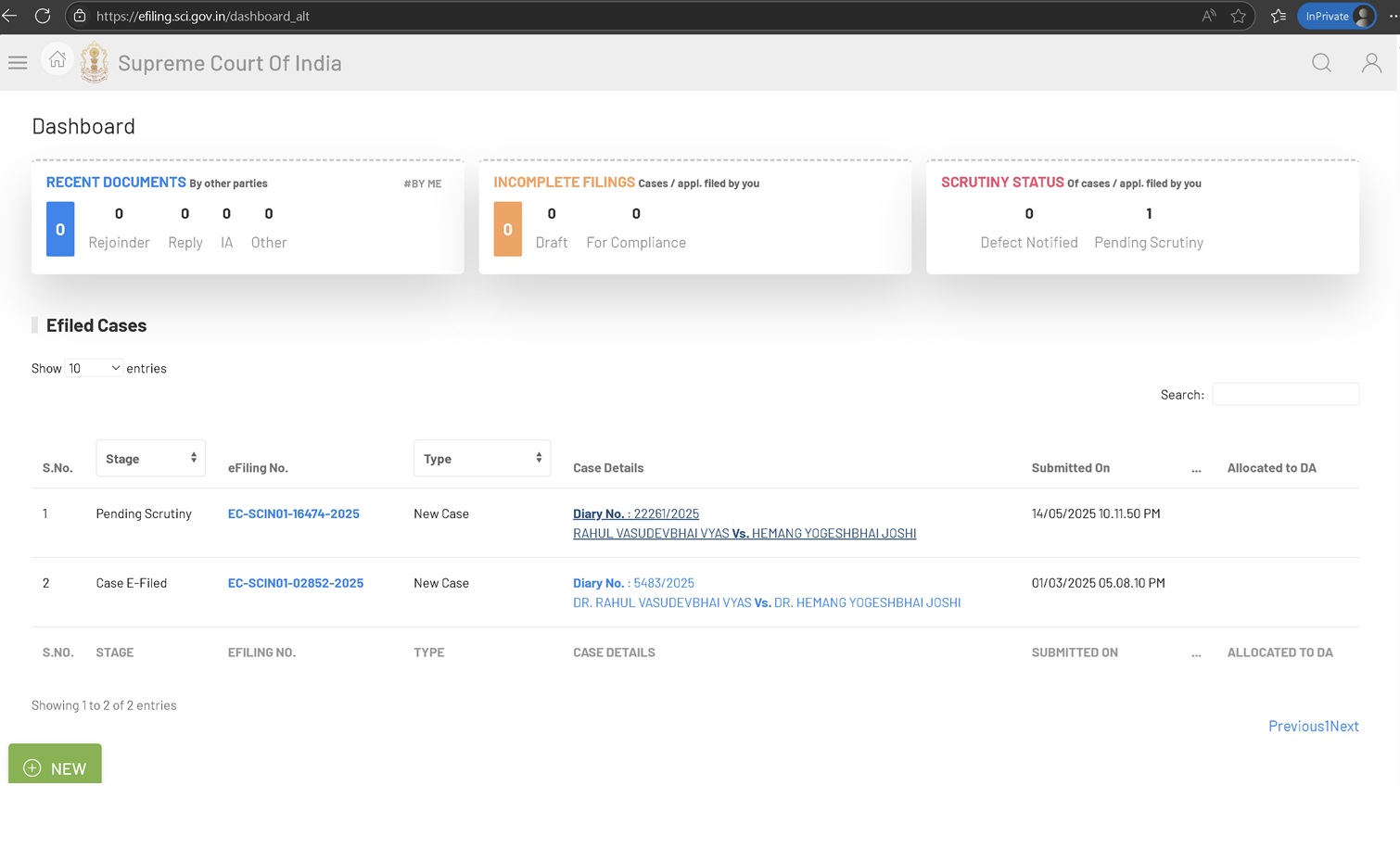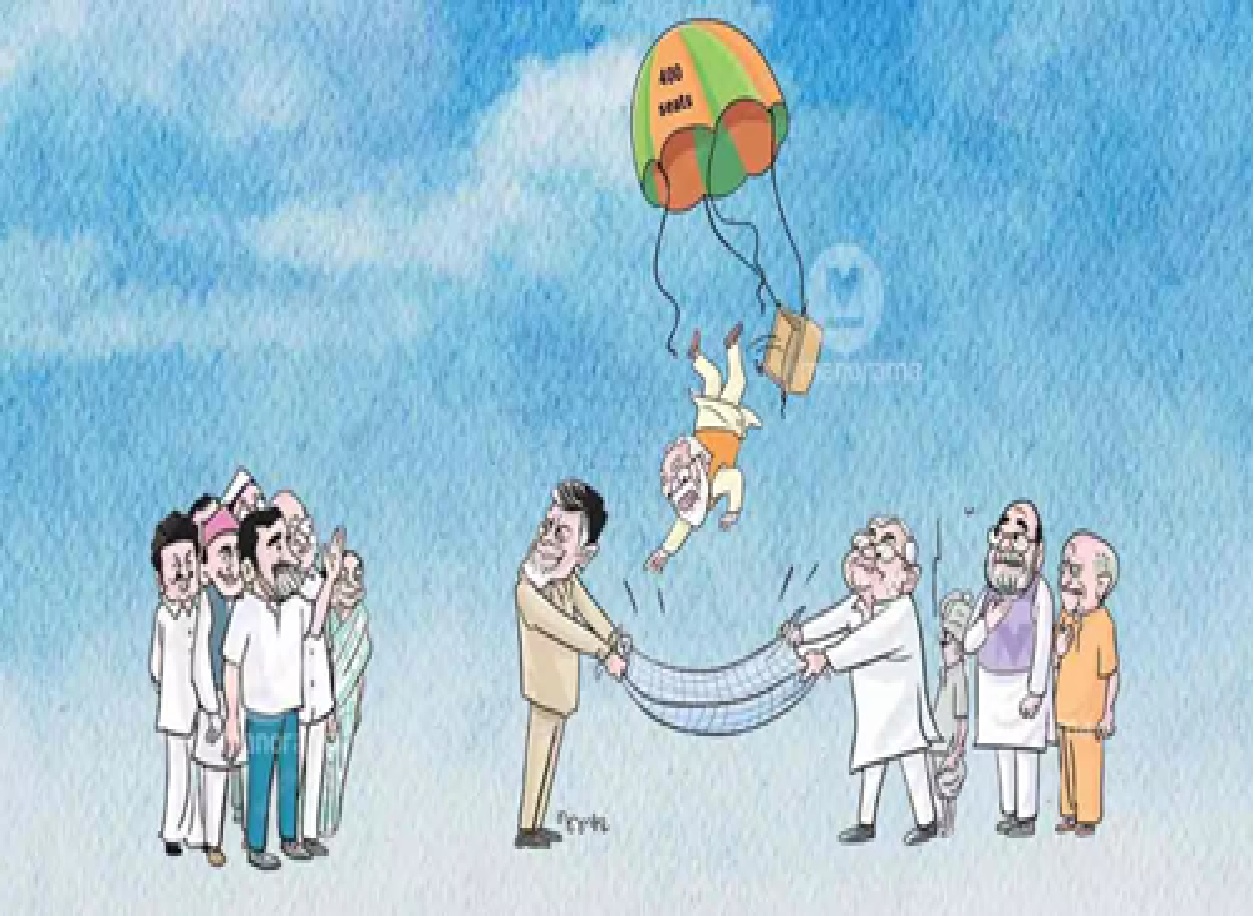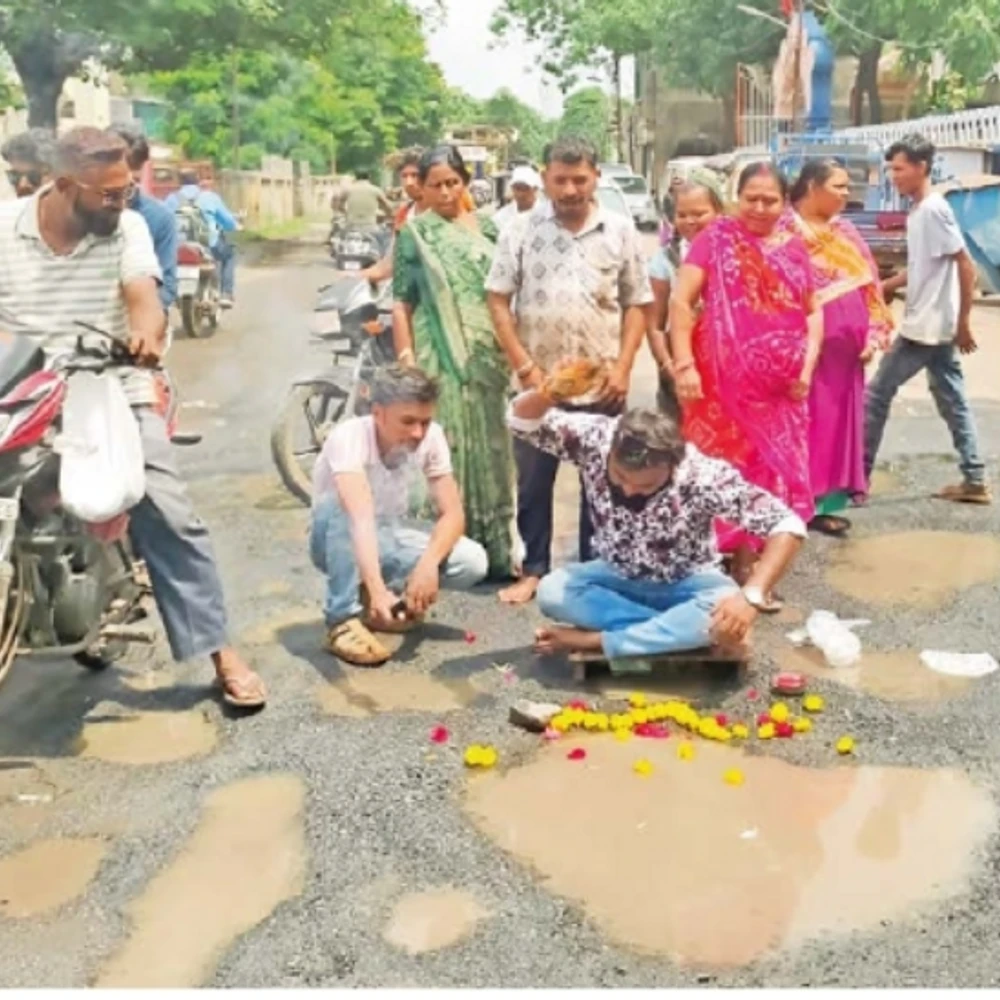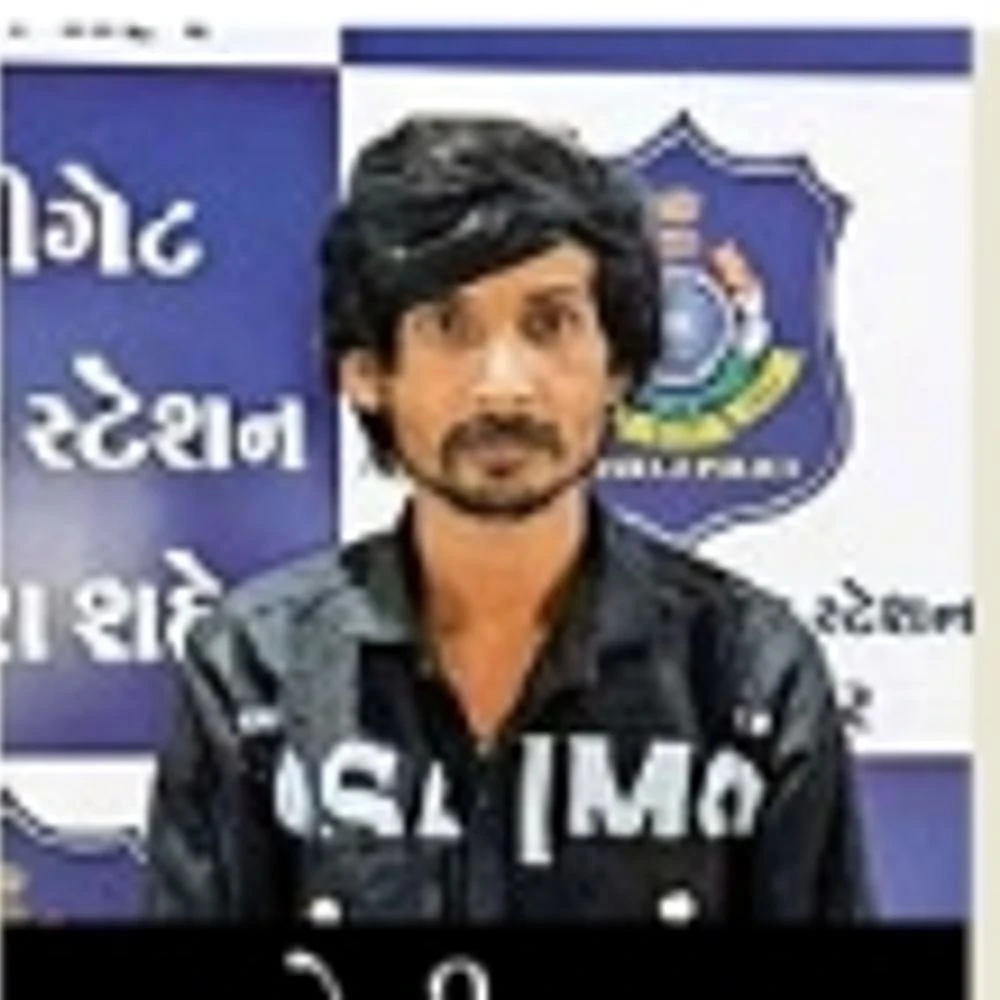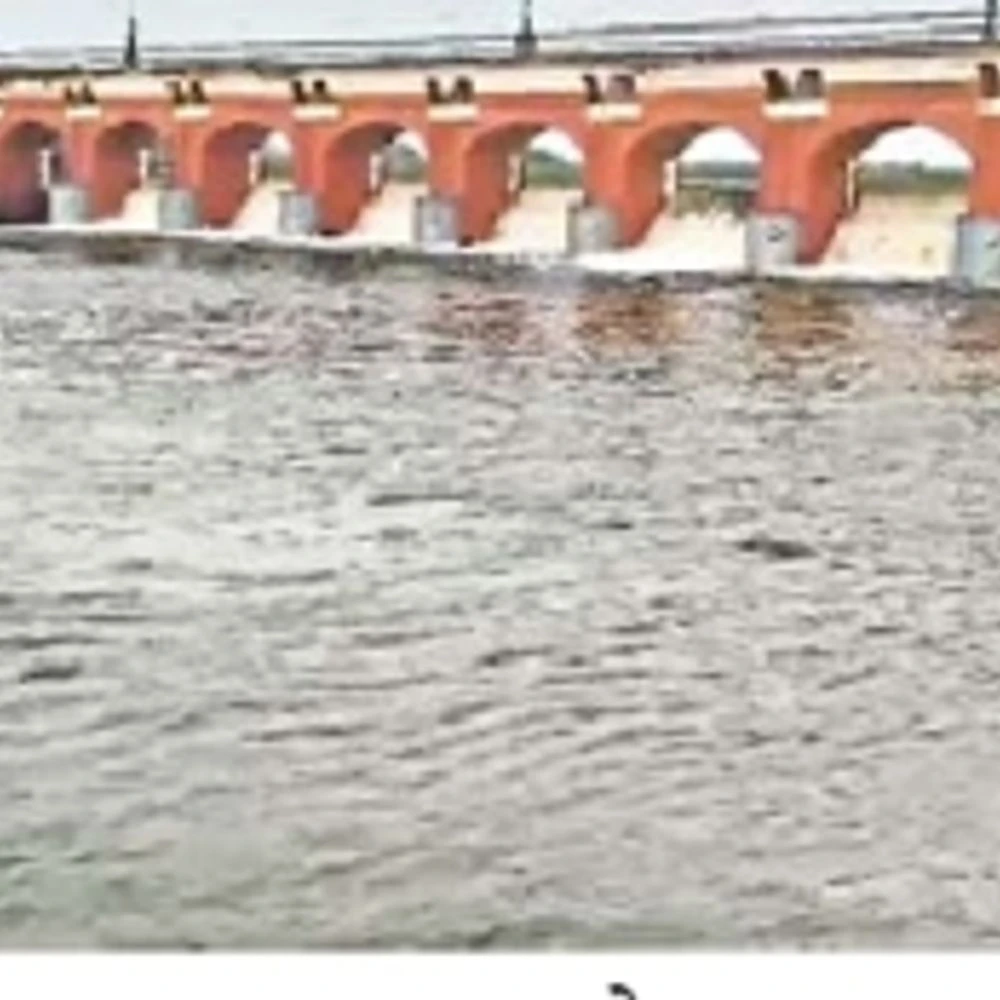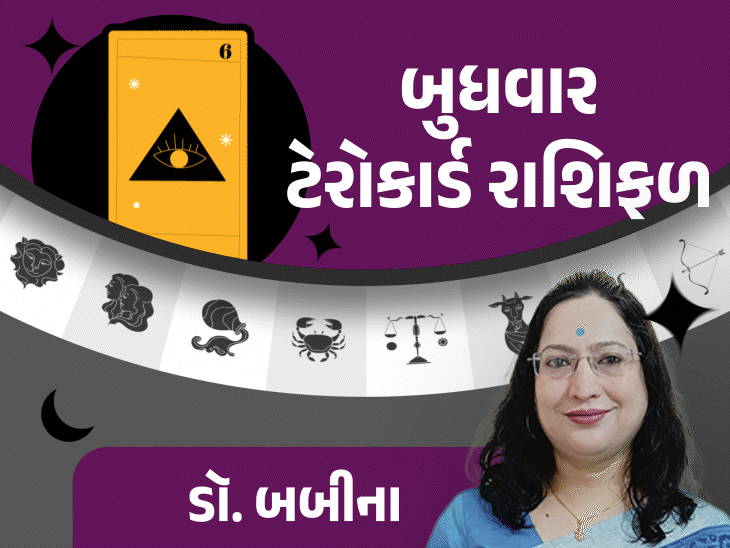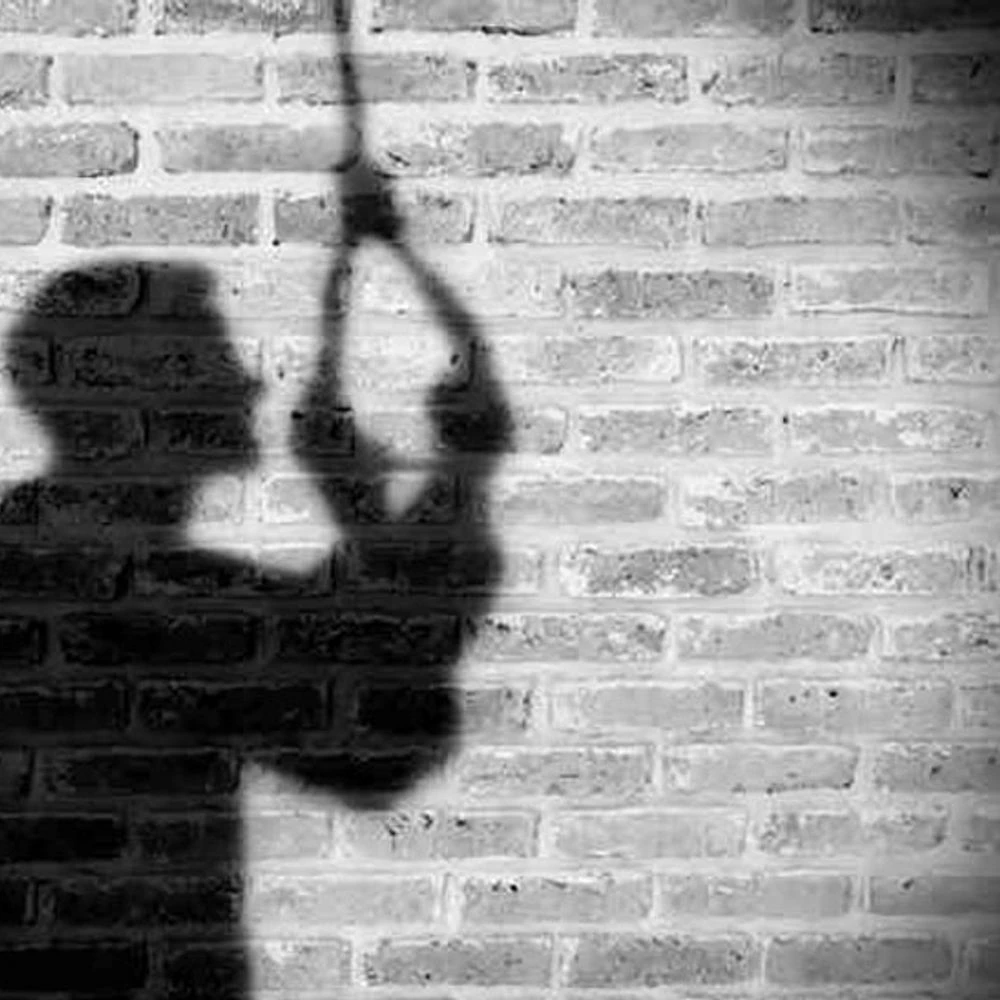In a nation priding itself as the world's largest democracy, a disturbing pattern has emerged in the Vadodara-20 Parliamentary seat, raising fundamental questions about the integrity of its electoral process. For the last four Lok Sabha elections, this constituency has presented an electoral anomaly that defies statistical probability and demands national introspection.
A Pattern That Defies Probability
For four consecutive general elections, the Vadodara seat has yielded results so mathematically uniform that they defy the very premise of free and fair elections. The Bharatiya Janata Party (BJP) winning with approximately 72% vote share, The Indian National Congress (Congress) securing approximately 24%, while all other candidates—including independents—and NOTA (None of the Above) each receive around 2%. This rigid pattern has held steady across four general elections, despite significant shifts in voter turnout, the number of contesting candidates, and changes in constituency demographics. If elections truly reflect the electorate's shifting will, how can the results remain statistically unchanged year after year? Is this the byproduct of strong political conviction—or the signature of something more mechanized?
To independent candidate and citizen activist Dr. Rahul Vasudevbhai Vyas, this pattern is more than curious. It is alarming. “How can the outcome remain unchanged when all the inputs vary?” he asks. “This is not the sign of voter loyalty—it’s the signature of a pre-written code.”
Election Commission: The Silent Spectator or Silent Collaborator?
The Election Commission of India (ECI), the constitutional body mandated to ensure free and fair elections, has remained notably unresponsive to this statistical oddity. It has not offered any transparent, data-driven explanation for this uncanny consistency. Furthermore, requests from candidates to review the software or code installed in Electronic Voting Machines (EVMs) have been denied, citing a lack of legal provision for such examination. In fact, no legal provision exists allowing any candidate to examine what lies beneath the plastic shell of the EVM—machines that now decide the fate of India’s democracy. Why deny access to such a fundamental democratic safeguard?
In developed democracies like Germany or the United States, any whiff of a software-based irregularity would trigger parliamentary inquiries, bipartisan scrutiny, and media investigations. But in India, this opacity fuels suspicion and erodes public trust, prompting questions about whether the ECI is operating as a truly independent body or as a "B-Team of the ruling party." “If the system is secure,” Vyas asks, “what is there to hide?”
Justice Deferred, Denied, or Deliberately Delayed?
When Dr. Rahul Vasudevbhai Vyas, a Vadodara-based independent candidate and citizen, sought legal recourse for these concerns, his path to justice proved to be a labyrinth of closed doors. His election petition was dismissed by the Gujarat High Court under Order 7 Rule 11 of the Civil Procedure Code, 1908, and relevant sections of the Representation of Peoples Act, 1951. The court did not even grant a detailed hearing.
Undeterred, Dr. Vyas approached the Supreme Court of India with a Special Leave Petition (SLP). In a move that surprised seasoned legal observers, the Court dismissed it in under a minute, with no oral arguments, no discussion on the merits, and no judicial reasoning recorded. Just an abrupt, silent shutdown.
His review petition, submitted on May 14, 2025, remains in limbo. Though containing updated documents, shows as “Pending Scrutiny” on the Supreme Court’s online portal. And yet, the Assistant Registrar claimed it was never received, further compounding the procedural hurdles. Adding insult to injury, the petitioner received a court-stamped letter on May 16, which mysteriously bore the date April 13, 2025— delivered a month later —and contained only page 1 of 2. Is this a clerical error—or is it a systemic tactic to delay, discourage, and disempower the voices seeking justice?
Vyas alleges these are not clerical errors, but deliberate obstructions. “The process isn’t just denying justice,” he says, “it’s exhausting those who seek it.”
The Judiciary and Corruption: Fire, Cash, and the Question of Judicial Integrity
These electoral questions are magnified by a pervasive anxiety about the integrity of India's institutions. The accidental discovery of unaccounted cash at a Delhi High Court Judge's bungalow following a fire has become a damning symbol for many, suggesting that corruption might permeate the very walls of justice. The perceived trend of judges who favour the government often receiving post-retirement rewards, such as Rajya Sabha seats or post-retirement rewards, further fuels cynicism about judicial independence.
To Vyas and others, this symbolizes a deeper rot. “Do we need a fire in every judge’s house to see the truth?” he asks. He also raises troubling questions about judges receiving post-retirement rewards—Rajya Sabha nominations, governorships—after issuing rulings favourable to the ruling establishment.
Media and Opposition: When Silence Becomes Complicity
The silence from other pillars of democracy is equally concerning. Once known for hard-hitting questions and investigative zeal, it now appears subdued. Mainstream media, often dubbed the fourth pillar, has largely ignored this story. One might question if this silence is due to fear of losing government advertising revenue or access privileges and fear of reprisal have created what Vyas calls a “climate of complicity.”
Even more disconcerting is the silence of the opposition parties. Despite the potential national implications of the Vadodara case, no major political leader has raised it in Parliament or the courts. No debates. No press conferences. No legal challenges. “Is democracy now too inconvenient to defend?” Vyas asks.
Is this silence purchased by government ads? Or is the media simply too afraid to lose access and privileges? And where are the opposition parties? Why haven't they raised this issue in Parliament? Why no public statements? No coordinated legal challenge? Are they asleep—or worse, complicit?
A Citizen’s Constitutional Right Denied
Dr. Vyas’s central question echoes the thoughts of millions: "As a citizen and a candidate, why am I not allowed to verify the code in the machines that decide my political fate? If the election was fair, what is there to hide?" This is not a demand for privilege, but a demand for transparency, for truth, and for the constitutional right to a fair election.
What Is at Stake?
What is at stake in Vadodara is not merely a single parliamentary seat, but the very soul of Indian democracy. If elections can be pre-written in code, if courts act as clearing houses for political convenience, and if media and opposition choose silence over scrutiny, then the Indian Republic risks becoming a democracy in form, but not in spirit. This story is a testament to a citizen's fight for dignity, voice, and representation, and a critical challenge to the moral obligation of institutions to protect democracy, not merely the ruling regime.
A Constitutional Right Denied
At the heart of the battle is one simple demand: transparency. The right to verify the machines that count our votes is not a privilege. It is a constitutional safeguard. In Germany, the United States, and across Europe, software audits and public scrutiny of voting systems are routine. In India, the very request is treated as seditious. “If democracy dies in Vadodara,” Vyas warns, “it dies everywhere.”
The Final Question: Will Justice Ever Be Served?
The final question for Dr. Vyas, and indeed for all of India, remains: "Do I, as a citizen who has followed every law, filed every document, and knocked on every door, not deserve justice?" If the answer is a continued denial of justice, not on merit but on convenience, then democracy is indeed dying – not in a loud explosion, but in whispers, paperwork, and silence.
The Final Word:
India does not lack laws. It lacks the courage to apply them without bias. The questions raised in Vadodara demand answers—not from political parties alone, but from every citizen who believes in the Constitution. Election Commission of India, your silence is not neutrality—it is complicity. The Supreme Court of India, justice delayed and dismissed is justice denied. To the people of India: when one voice is silenced, the whole country echoes in defeat. Let that not be our future. Let this be our wake-up call. This is not just Dr. Vyas’s battle. It is a test of whether Indian democracy still belongs to its people—or only to its powerful.
0 thoughts on “Is India's Democracy on Autopilot? Unanswered Truths from Vadodara’s Lok Sabha Elections for truth, for justice, and for the republic.”
Leave a Reply
Your email address will not be published. Required fields are marked *
RECENT NEWS
- Residents of Gajrawadi Road worshipped the pit and slaughtered coconuts.
- Accident: LRD bracelet stuck in car while trying to stop Echo, driver dragged jawan as car chases
- Planning: 62 gates of Ajwa opened for the fourth time in the season, water was released again to level 212.75
- Tarot Horoscope for September 10: Taurus-Cancer will have a day full of stability and contentment.
- Mahisagar youth commits suicide by hanging himself in rented house in Manjalpur; The police have launched a further investigation



